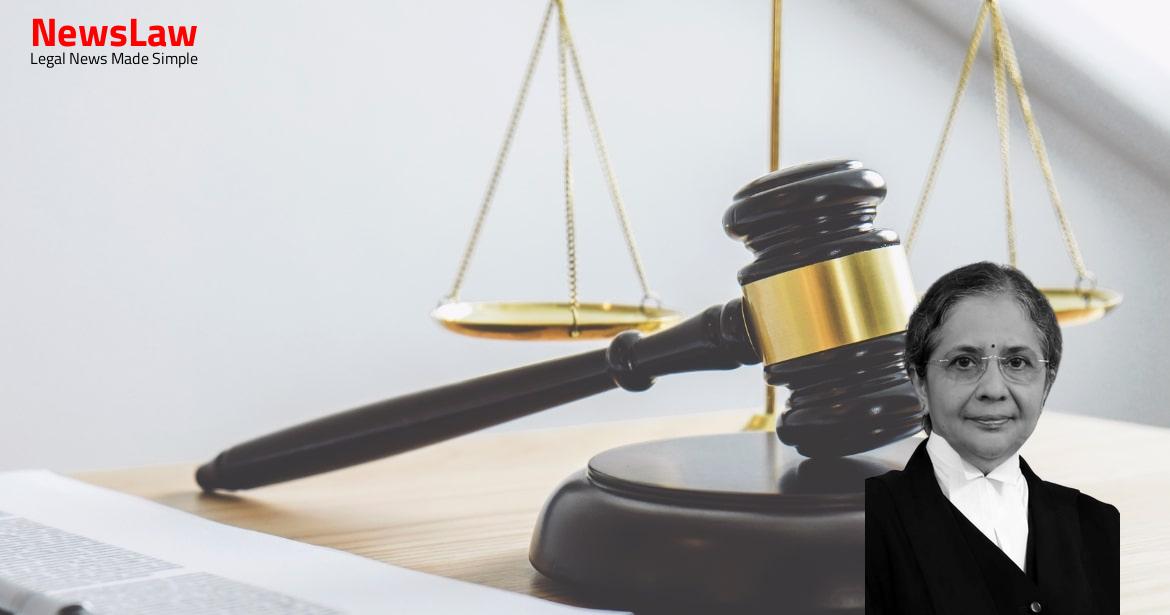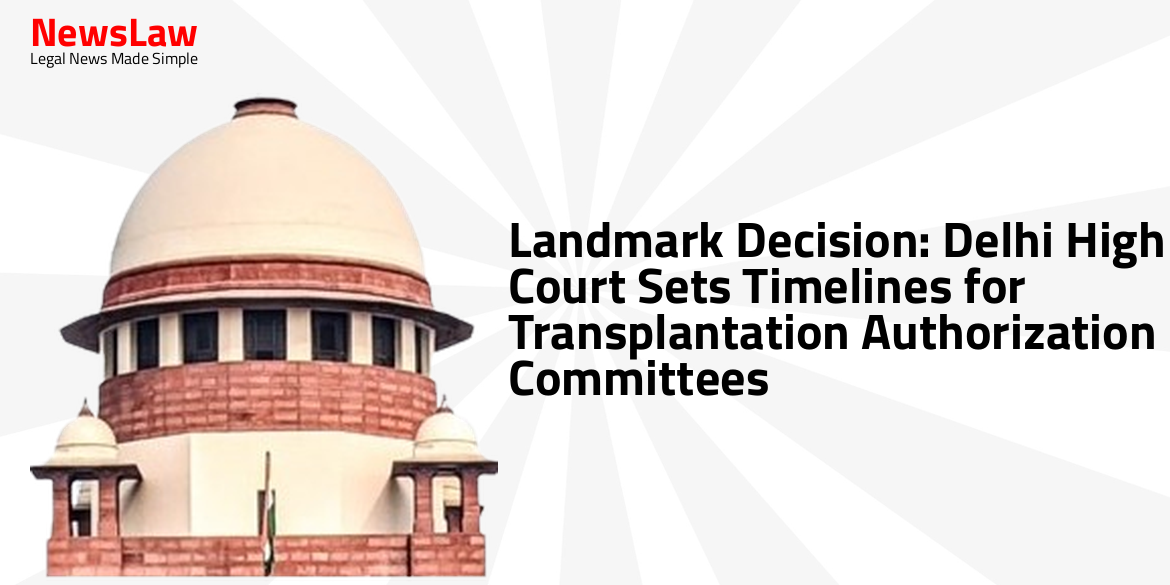Delve into the recent Supreme Court judgement that addressed the issue of determining commercial purpose in car purchases. The case involved a dispute between a company, Controls and Switchgear Company Ltd., and Mercedes Benz India Pvt. Ltd. regarding the purchase of a car for personal use. The Supreme Court’s decision sheds light on the interpretation of ‘commercial purpose’ under consumer protection laws. Learn more about this key legal case and its implications for future consumer disputes.
Facts
- The appeal is regarding the impugned order dated 17.09.2007 concerning a specific car registration number DL-5CR-0333.
- The appeal is filed by M/s Daimler Chrysler India Pvt. Ltd., now known as Mercedes Benz India Pvt. Ltd.
- The appeal arises from Original Petition No. 09 of 2006 filed by M/s Controls and Switchgear Company Ltd.
- The impugned order was passed by the National Consumer Disputes Redressal Commission.
- The issue in question is the maintainability of the complaint filed by the company for a car purchased for the personal use of its director.
- There is a conflict in findings between this case and a previous case of General Motors Pvt. Ltd. Vs. G.S. Fertilizers Pvt. Ltd.
- The matter has been referred to a three-member Bench of the National Commission for resolution.
- The National Commission in Consumer Complaint No. 51 of 2006 held that if goods or services are obtained by a company for the personal use of its directors or employees, it does not amount to a commercial purpose.
- The National Commission adjudicated the disputes between the parties in 2006 and gave directions on 11th September 2017.
- In another related case, the Commission had directed the replacement or refund of a car purchased by a company for the personal use of its directors, stating it was not for commercial purposes.
- Various appeals and cross-appeals have been filed challenging the judgements of the National Commission in Consumer Complaint No. 51 of 2006.
- Mercedes Benz India Pvt. Ltd. has filed multiple appeals against the National Commission’s orders.
- The judgements and orders passed by the National Commission on 8th July 2016 and 11th September 2017 have been challenged by different parties.
Also Read: National Investigation Agency vs. Popular Front of India: Supreme Court Judgement
Issue
- The determination of whether goods purchased by a person, including a legal entity like a company, were for commercial purposes or not, within the definition of a ‘consumer’ under Section 2(1)(d) of the Consumer Protection Act, depends on the specific facts and circumstances of each case.
- The National Commission directed Mercedes Benz to pay Rs. 25,000 as litigation costs to the complainant in Consumer Case No. 51 of 2006.
- The National Commission ordered M/s CG Power to pay Rs. 5.00 lacs for deficiency in services due to non-deployment of airbags and Rs. 5.00 lacs as compensation for unfair trade practices.
Also Read: D.K. Gandhi vs. The Advocates in Consumer Protection Case
Arguments
- The appellants argued that the purchase of the car by the company for the director’s personal use should be considered for commercial purposes, but the court disagreed.
- It was argued that the driver’s airbag deployment was not necessary as the driver was restrained by the seat belt and the front passenger airbag would only deploy if the front passenger seat was occupied.
- The complainants did not provide expert evidence to establish a defect in the front airbags of the car in question.
- The appellants pointed out that the complainants had sold the car during the proceedings, making it impossible for the Commission to inspect it.
- The appellants were accused of misrepresenting their car as the safest on the road with airbags for both front and rear passengers.
- The respondents argued that neither front nor side airbags deployed during the accident, questioning the safety claims made by the appellants.
- The appellants contested the claim that the car was for personal use, stating that no requisite form attested by a Chartered Accountant was provided by the respondents.
- The owner’s manual and airbag features were not produced by the appellants, leaving uncertainty about the pre-determined deployment level of the airbags.
Also Read: High Court Appeal: Custody of Vehicle in Gujarat Prohibition Case
Analysis
- The definition of “consumer” as per Section 2(1)(d) of the Act excludes persons who obtain goods for resale or for any commercial purpose.
- Commercial purpose includes purchases made by companies for their operational needs, even if the goods or services are used incidentally for personal use by directors or employees.
- Use of goods purchased for self-employment and livelihood does not fall under the definition of commercial purpose.
- The term ‘commercial purpose’ has not been defined under the Act, but has been interpreted in various court decisions.
- In the case of Laxmi Engineering Works vs P.S.G Industrial Institute, the Court concluded that whether a purchase is for a ‘commercial purpose’ is a factual determination based on the circumstances of each case.
- A case-by-case assessment is required to determine if the dominant intention for a transaction was profit generation.
- In the case of Rohit Chaudhary and Another vs Vipul Limited, it was held that if the primary purpose of purchasing goods or services is for profit, the purchaser is not considered a consumer.
- The dominant purpose behind the purchase must be linked to profit generation for the purchaser or their beneficiary to be deemed for a commercial purpose.
- Personal use and consumption without commercial activity do not fall under the category of commercial purpose.
- The purchase should have a direct nexus with profit generation and be related to trade or commerce for it to be considered for a commercial purpose.
- The identity of the buyer or the transaction value alone is not conclusive in determining if the purchase is for a commercial purpose.
- The purchase of the high-end luxury car was for personal use and not for commercial purposes, as emphasized by Mercedes Benz India.
- The misrepresentation by Mercedes Benz India regarding the safety features of the vehicle, especially the airbags, led to unfair trade practices.
- The National Commission found that the car’s defects, such as non-deployment of frontal airbags, were established.
- The National Commission ordered compensation for the deficiencies in service concerning the airbags and deemed the non-disclosure of airbag functioning as an unfair trade practice.
- Despite offers from Mercedes Benz India to repurchase the car at market or book value, the original complainant continued using the car for several years.
- The National Commission directed Mercedes Benz India to refund a reduced amount instead of the original purchase price in the final order.
- The National Commission’s judgment dated 11 September 2017 regarding the trade practice in question does not require any interference.
- The evidence and material presented by both parties were thoroughly considered by the National Commission.
- Engaging in deceptive practices to promote the sale of goods by falsely representing their quality, standard, style, or model constitutes unfair trade practice under Section 2(1)(r) of the Act.
Decision
- C.A. No 353/2008: Respondent is allowed to retain the car DL-9CV-5555
- C.A. No 353/2008: Appeal is partly allowed
- C.A. No 19536 & 19537/2017 and C.A. No 2633/2018: All three Appeals are dismissed
- Appellant to refund Rs. 36,00,000 to the respondent as compensation within three months
- If appellant fails to refund, interest at the rate of 9% per annum to be paid from the date of the order
Case Title: M/S DAIMLER CHRYSLER INDIA PVT.LTD. Vs. M/S CONTROLS (2024 INSC 496)
Case Number: C.A. No.-000353-000353 – 2008



